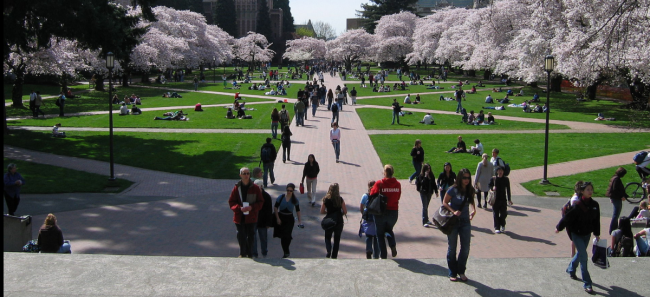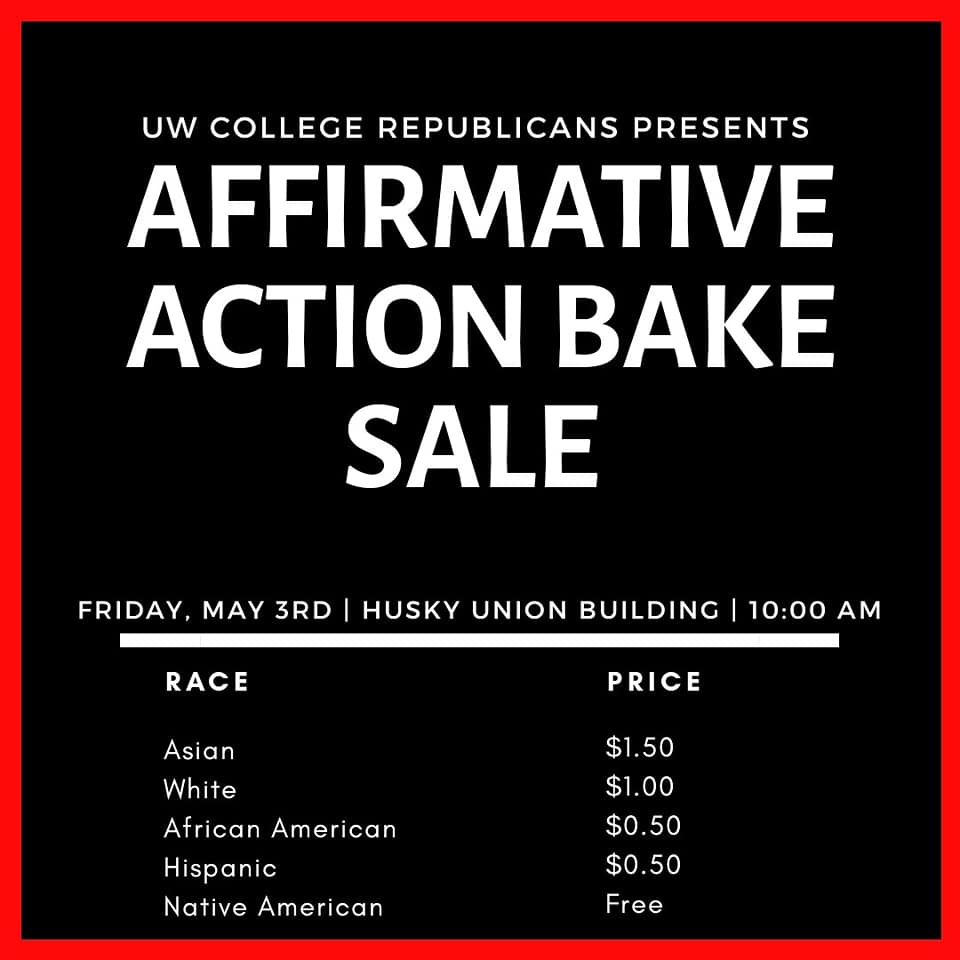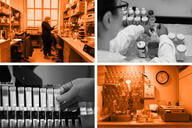You have /5 articles left.
Sign up for a free account or log in.

University of Washington
Wikipedia
Washington State could become the first state where voters barred public colleges from considering race in admissions to reverse that ban.
Legislation to do so has now been enacted and, in theory, will take effect in a year. The measure says that public colleges and other entities can resume considering race and ethnicity as one factor in decision making on admissions. The measure explicitly states that the universities may not make decisions solely based on race or ethnicity (something that the Supreme Court already bars them from doing).
Twenty years ago, Washington State voters put in place the ban that the Legislature is now lifting. In Washington State, the Legislature has the power to repeal such referenda; in some other states with bans, the state's voters would need to repeal them. But just as voters once decided the issue, they could do so again. Already critics of affirmative action are organizing a campaign to restore the ban. And campus Republican groups are organizing events to oppose the legislative action to restore the consideration of race in admissions.
A petition seeking to keep the ban on affirmative action says, "I-1000 [the measure passed by the Legislature] can be summed up in one sentence: it would abolish the standard of equality for all, regardless of race, as required by I-200, and replace it with a system that uses different rules for people of different races."
The developments in Washington State come at a time when a lawsuit against Harvard University over affirmative action -- if appealed to the U.S. Supreme Court as expected -- could have an impact on colleges nationwide. Washington State shows that the impact varies in part based on state populations and the competitiveness of public colleges and universities.
In the state, about 4 percent of the population is black, 2 percent Native American, 9 percent Asian American and 13 percent Latinx.
The University of Washington's main campus in Seattle is the most competitive in admissions in the state, and the one where Initiative 200, the ban on consideration of race passed in 1998, has had the greatest impact.
The most recent federal data show the university's student body mix has more Asian Americans (25 percent) than their share of the state population. But the shares of white (42 percent), black (3 percent), Latinx (8 percent) and Native American (less than 1 percent) students lag their share of the state population. (The numbers do not add to 100 because of those who don't identify their background, those who identify in multiple categories and so forth.)
A 2006 article in the journal Sociology of Education documented the impact of Initiative 200 on applications to the University of Washington. The article (abstract available here) found that, in the year following passage of the initiative, the percentage of nonwhite new high school graduates who went on to college dropped by two to three percentage points. Statewide, the drop was in part reversed.
The impact was greatest, and was sustained, at the University of Washington, the study found. Black, Latinx and Native American enrollment made up 8.2 percent of freshman enrollment at the University of Washington in the last year before 200 passed. It fell to 5.7 percent in the first class after 200, according to the study, by Susan K. Brown and Charles Hirschman.
The university is holding off on changing policies for now, due to the campaign to reverse the legislative reversal. But officials have spoken out about how the impact of the repealed ban extends beyond admissions, University of Washington officials say.
In remarks last week, Ana Mari Cauce, president of the university, said that "I-200 puts the University of Washington at a competitive disadvantage when seeking to hire the best faculty and staff to lead our university. It also hampers our ability to attract and enroll the strongest students from underrepresented backgrounds, who are so highly sought after by other universities because having a diverse student body creates a richer learning environment for all students.
"As one of our nation’s top research universities, we compete with institutions like Stanford, Texas, Wisconsin and UNC Chapel Hill when trying to attract the most talented faculty to teach and lead cutting-edge research with our students. To those top faculty and staff that we wish to recruit, I-200 sends the message that the UW, and Washington as a whole, does not welcome or value diversity, and when we lose out on attracting these desirable teachers, researchers, innovators and administrators, it is our students and our state that pay the price."
Cauce added that "I-200 also makes it harder to compete for the highest-achieving underrepresented minority students in Washington State, especially when they are middle or upper middle class. These talented and promising students are especially targeted and heavily recruited by private universities as well as public universities in other states, and when they leave our state to attend college, they are less likely to return. This costs our work force and our innovation-driven economy at a time when we’re recognizing the need for more diversity in the tech and health industries."
Debate Over a Bake Sale
The Legislature's action has prompted some to organize petition drives for a new referendum.
 The College Republicans at the University of Washington are backing that effort and held a bake sale Friday to support it. As in similar bake sales to oppose affirmative action, the Republicans set prices based on race (see sign at right).
The College Republicans at the University of Washington are backing that effort and held a bake sale Friday to support it. As in similar bake sales to oppose affirmative action, the Republicans set prices based on race (see sign at right).
The group explained the approach this way: "Our bake sale priced are based on affirmative action, which as of last week is a legal policy in the state of Washington. I-1000 allows for race to be a factor in college admissions. This is a policy that has historically discriminated against Asian American students and blatantly allows the government to discriminate based on race. We are against this blatantly racist law and we hope to see it repealed."
Cauce released a letter to the campus on Friday criticizing the bake sale. She endorsed the use of affirmative action and said that there were also arguments to be made on the other side, but that the bake sale was counterproductive.
"I am on the record in support of repealing provisions of I-200, which would allow us to take race and gender into account, as one of many other factors, when admitting students and hiring faculty and staff … At this time when we are beginning to learn more about the advantages that legacy status, monetary donations, participation in elite sports or being the child of a faculty member can provide in gaining admission to some of our most elite institutions, allowing some consideration for race seems benign by comparison," she wrote. "The intent is to level the field, not advantage one group over another."
She added that there are "cogent arguments that can be made against taking race or gender into account during hiring or admissions, and some forms of affirmative action -- including quotas -- remain illegal. " While Cauce said it was appropriate to have "difficult conversations about affirmative action," she said the bake sale did not encourage such conversations.
"The so-called affirmative action bake sale the UW College Republicans are hosting today has no place in such a debate," she said. "It does not create a forum for serious discussion, but instead appears to mock not so much just a policy, but individuals who belong to racial, ethnic and gender groups that have historically been marginalized and that have often experienced very real prejudice, discrimination and oppression. Indeed, the way that the poster advertising this event juxtaposes race and price is reminiscent of a time when persons in some of these groups were literally bought and sold. Regardless of its intent, this sale humiliates and dehumanizes others. It is no surprise that so many on our campus and in our community are deeply offended by it."




